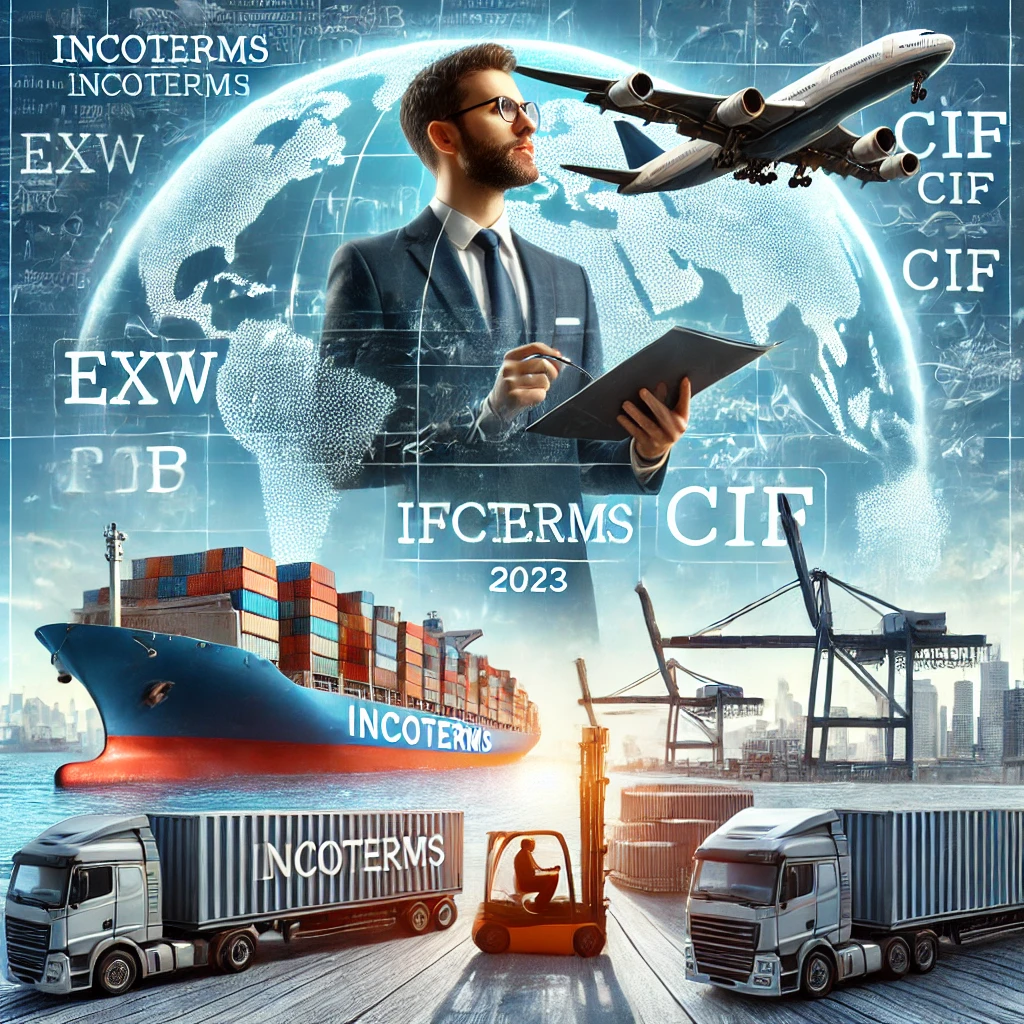An In-Depth Guide to Incoterms 2023
The Incoterms 2023 edition builds upon previous versions, refining international shipping regulations to adapt to modern trade practices. This guide provides a detailed breakdown of Incoterms 2023, including key changes, their significance, and how businesses can leverage them effectively.

What Are Incoterms?
Incoterms are standardized terms that outline the obligations, risks, and costs associated with global trade. They establish who is responsible for:
- Transporting goods from seller to buyer.
- Handling customs procedures and documentation.
- Paying for shipping, insurance, and import/export duties.
Incoterms apply to all types of transportation, including sea, air, rail, and road freight.
Key Changes in Incoterms 2023
The Incoterms 2023 edition introduces refinements to ensure greater clarity and efficiency in international trade. Here are the major updates:
1. Enhanced Risk Clarifications
- Clearer definitions of when risk transfers from seller to buyer.
- Strengthened distinctions between DAP (Delivered at Place) and DDP (Delivered Duty Paid).
2. More Flexibility in Cost Distribution
- Allows parties to negotiate shared shipping costs for multimodal transport.
- Improved cost-sharing guidelines for freight, insurance, and duties.
3. Strengthened Digital Documentation Provisions
- Recognition of electronic bills of lading (eBOLs) and digital trade agreements.
- Simplified compliance with blockchain-based logistics solutions.
4. Adjustments for Post-Pandemic Supply Chain Needs
- Revised rules for force majeure and global supply chain disruptions.
- Adaptations for just-in-time inventory strategies and logistics resilience.

Breakdown of Incoterms 2023
Group 1: Incoterms for Any Mode of Transport
Incoterm | Meaning | Risk Transfer Point | Who Pays for Freight? | Who Handles Insurance? |
EXW (Ex Works) | Seller makes goods available at their premises | At seller’s premises | Buyer | Buyer |
FCA (Free Carrier) | Seller delivers to buyer’s chosen carrier | First carrier’s location | Buyer | Buyer |
Seller arranges freight to the destination | First carrier’s location | Seller | Buyer | |
CIP (Carriage & Insurance Paid To) | Seller arranges freight & insurance | First carrier’s location | Seller | Seller |
DAP (Delivered at Place) | Seller delivers to a specified location | Buyer’s location | Seller | Buyer |
DPU (Delivered at Place Unloaded) | Seller delivers & unloads goods | Buyer’s location | Seller | Buyer |
DDP (Delivered Duty Paid) | Seller delivers & pays all duties | Buyer’s location | Seller | Seller |
Group 2: Incoterms for Sea and Inland Waterway Transport
Incoterm | Meaning | Risk Transfer Point | Who Pays for Freight? | Who Handles Insurance? |
FAS (Free Alongside Ship) | Seller places goods next to the ship | Port of departure | Buyer | Buyer |
FOB (Free on Board) | Seller loads goods onto the ship | When goods are loaded | Buyer | Buyer |
CFR (Cost & Freight) | Seller arranges freight to the destination | When goods are loaded | Seller | Buyer |
CIF (Cost, Insurance & Freight) | Seller arranges freight & insurance | When goods are loaded | Seller | Seller |

Practical Uses of Incoterms 2023
1. E-Commerce and Cross-Border Trade
📦 Businesses selling internationally often use DDP (Delivered Duty Paid) to ensure seamless delivery.
2. Bulk Shipping and Industrial Supply Chains
🚢 CFR (Cost & Freight) and FOB (Free on Board) are preferred for large-scale maritime transport.
3. High-Value and Time-Sensitive Goods
✈️ CIP (Carriage & Insurance Paid To) ensures adequate risk coverage for fragile or expensive shipments.
4. Manufacturing and Just-in-Time Logistics
🏭 FCA (Free Carrier) is commonly used for multimodal transport, reducing delivery time uncertainties.
Choosing the Right Incoterm for Your Business
Selecting the appropriate Incoterm depends on several factors:
1. Consider the Transportation Mode
- Sea shipments → Use FOB, CIF, or CFR.
- Multimodal transport → Use FCA, CPT, or CIP.
2. Analyze Cost Responsibilities
- If the seller wants minimal responsibility, choose EXW.
- If the buyer prefers a hassle-free purchase, use DDP.
3. Assess Risk Exposure
- If risk transfer should happen at the buyer’s country, use DAP or DPU.
- If the seller should control most risks, use CIF or CIP.
4. Ensure Compliance with Local Regulations
- Some countries impose strict import duty policies, making DDP less favorable.
- Verify whether electronic documentation is legally accepted.

Frequently Asked Questions (FAQs)
Q1: Are Incoterms 2023 legally binding?
📌 Answer: Incoterms are not laws but widely recognized commercial standards incorporated into contracts.
Q2: Can Incoterms be modified in a contract?
📌 Answer: Yes, buyers and sellers can negotiate modifications as long as both agree in writing.
Q3: What is the difference between DPU and DAP?
📌 Answer: DPU (Delivered at Place Unloaded) requires the seller to unload goods, while DAP (Delivered at Place) only requires delivery.
Q4: How do Incoterms affect insurance?
📌 Answer: Only CIF and CIP require sellers to purchase insurance; for other terms, insurance is optional.
Q5: Can Incoterms 2023 be used for domestic trade?
📌 Answer: While primarily for international trade, Incoterms can be used in domestic contracts if specified.
Conclusion
The Incoterms 2023 edition offers refined risk allocation, cost distribution, and digital trade adaptations to meet modern business needs. Whether you are an importer, exporter, freight forwarder, or logistics professional, understanding these terms ensures smoother transactions and reduced disputes.
By selecting the right Incoterm, businesses can optimize their shipping processes, mitigate risks, and enhance operational efficiency in international trade.
